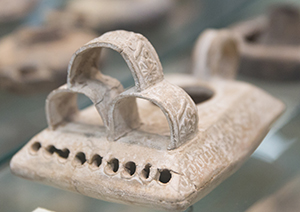Oil Lamps in Biblical Times
In case you needed a visual for last Sunday's sermon on Zechariah 4.
Be Killing Sin, Or Else
From Grace to You comes this encouraging reflection on the need to make all out war against indwelling sin.
Is Eldership Gender-Neutral? A Response to Katia Adams
A well-reasoned, biblically astute, and respectful critique from Andrew Wilson. "There are times, of course, to quibble with specific translations; regular readers will know that I do it myself. But when you quibble with all of them, and the lexicons, and the commentators—and especially when you do so by misrepresenting the way the Greek language works—there is a problem."
Context Matters: Valley of Dry Bones
This short article presents a useful exercise in paying close attention when exegeting Scripture.
ABOUT — The Sunday Reader shares articles we've found particularly insightful, thought-provoking, or edifying this week. While not always representing the views of our Pastors and Elders, these selections offer a mix of viewpoints to broaden and frame your understanding of God, Scripture, ourselves, and the world we serve in Christ's name.









